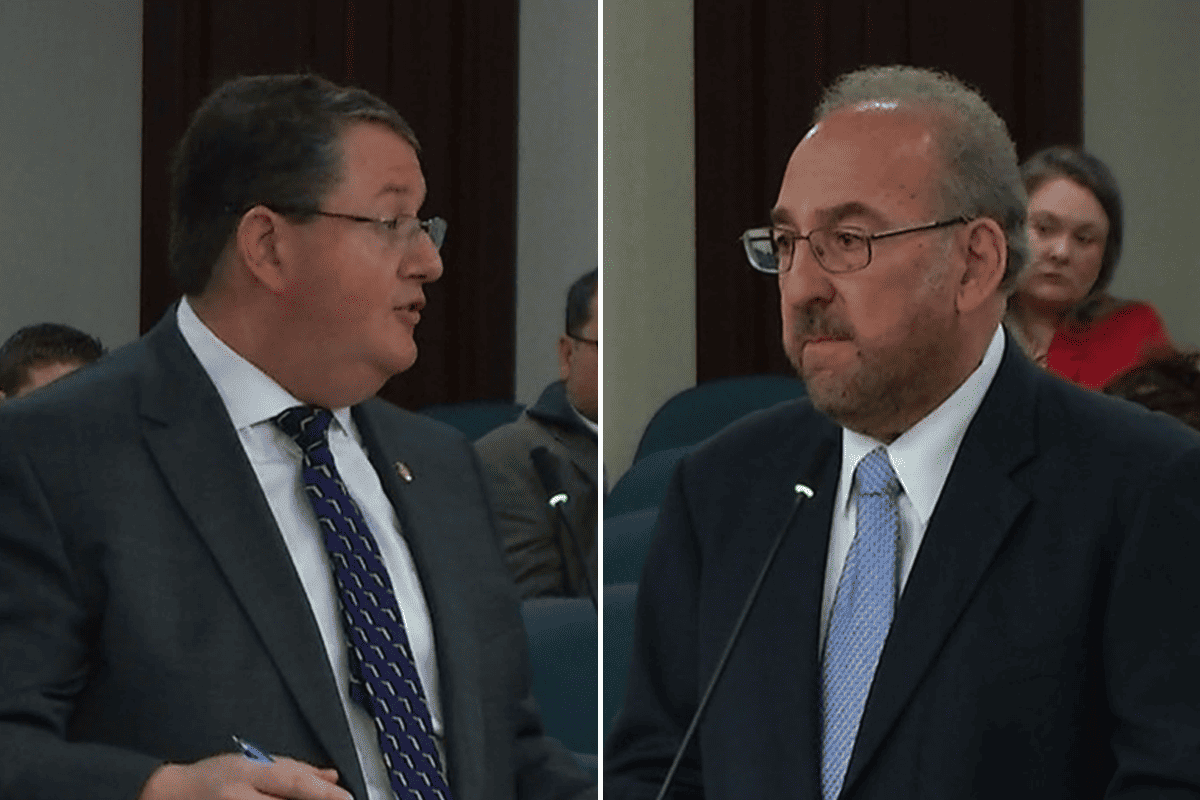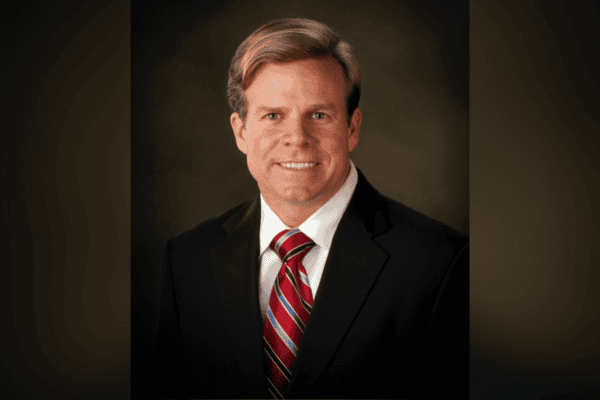Bill aims to replace North Brevard Hospital District board, conduct ‘valuation’, CEO opposes

TALLAHASSEE, Fla. – A local bill passed through its second Florida House committee stop Friday, which would make governance changes to the North Brevard County Hospital District board and require a “valuation” to see if there are any potential buyers.
HB 739, presented by Rep. Randy Fine, R-Palm Bay, would aim to replace the current board members and conduct a valuation to “look to see if there are alternatives to being operated as a government hospital,” according to Fine.
The North Brevard County Hospital District is an independent special district in Brevard County created in 1953. The district was created for the purpose of establishing and operating hospitals in the county. The district operates Parrish Medical Center, a 210 bed hospital in the city of Titusville.
The bill would replace the current board of the district with a five-member board appointed by the governor. The district board currently consists of nine members.
The bill says the current members’ terms would terminate as of the effective date of the bill. According to the text, this act would take effect upon becoming a law.
The bill would require the district, on or after Oct. 1, to “adopt a resolution to commence a valuation of the district’s assets and provides qualifications for who may conduct the evaluation.”
The current law authorizes the sale or lease of local government owned hospitals. The governing board of the hospital must find that the sale or lease of the hospital is in the “best interest” of the affected community and must state the basis of the finding, according to the bill’s analysis.
After the receiving the evaluation report, the bill requires the district to solicit bids for the district’s assets. If the district’s assets are sold, the proceeds are transferred to the Brevard County Board of County Commissioners.
Additionally, the bill revises “dissolution procedures” for the district, providing that the assets and liabilities of the district will be transferred to the Brevard County Board of County Commissioners.
The legislation removes the district’s ability to levy an ad valorem tax, which is an annual tax levied by counties, municipalities, school districts, and some special districts.
“Just so you understand why we’re thinking about doing this, they currently owe $80 million in the name of taxpayers in our county, in addition to having $237 million in liabilities,” Fine told lawmakers.
Fine said the hospital has “lost money almost every year during the past decade, with the two exceptions being when they got the big infusion because of COVID relief money.”
He added that hospital admissions have dropped 10% annually over the last 10 years “despite the fact that the county is booming.”
During the pandemic, Fine said the hospital “refused to allow their employees to administer the COVID vaccine to their patients, despite the fact that it is a so-called ‘safety net hospital’ requiring patients to receive the vaccine and outdoor clinics.”
He said the hospital claims to be a “safety net hospital,” but they’ve refused in the past to contract with multiple Medicaid-managed care companies.
Fine said although he is unsure if someone else could run the hospital better, he believes it “makes sense to see if there’s someone else who’s interested in giving it a try.”
During public comment, George Mikitarian, president and CEO of Parrish Medical Center, spoke against the bill and answered questions from lawmakers.
“I am here to give you the truth about my organization, and the truth regarding what is behind this bill with dire consequences if passed,” Mikitarian said.
He argued his organization “provides much needed health care services” and mentioned some of the services they provide.
He said they “put every penny we make back into the programs and services to serve our community.”
Fine argued against that claim.
“They claimed that they put every penny they make back into the community – so in 2016, they lost 4.2 million, I guess they didn’t put any money back into the community. In 2017, they lost 2.7 million, so I guess they didn’t put any money back into the community…” Fine said.
Fine continued to list the amounts year-after-year.
“This is not sustainable – that is the problem,” Fine said.
Florida Today previously reported in 2019, Parrish Medical Center “held an A rating from the nonprofit watchdog agency Leapfrog at the same time it held a one-star rating from CMS [Centers for Medicare & Medicaid Services].”
Leapfrog was mentioned by Mikitarian during his speech.
“There is a private company that uses their own private data source called the LeapFrog group, which we recently have received a C grade. In fact, we’ve received a C grade, all during the pandemic. Interestingly, for every year prior to that, we received an A,” Mikitarian said.
Fine addressed the Leapfrog comments in his closing speech.
“I didn’t understand any of that, but the statistic I gave you is from CMS – government statistic – that put them in the bottom 5% in the country,” Fine said.
CMS is a federal agency that works in partnership with the entire health care community “to improve quality, equity and outcomes in the health care system,” according to their website.
During the meeting, Rep. Joe Casello, D-Boynton Beach, asked Mikitarian if he believed the issue might be related to “the administration – on the way things are being done at the hospital.”
“Not certain of what issues we’ve been talking about other than quality?” Mikitarian responded.
Casello asked if there “has there been any case of mismanagement of the hospital that cause the bottom line to disappear.”
Mikitarian responded and said the bottom line has “not disappeared.”
“The bottom line is applied to programs and services each and every year. There have been comments about how much outstanding debt we have… 97% of hospitals in this country have debt, that’s how they construct and build,” Mikitarian responded.
Mikitarian said they borrow money “just like any other hospital.”
“However, the shrewdness and intelligence of our board directed us to go directly to the banks and obtain what are called private placement bonds – those private placement bonds total about $78 million at a 3% interest rate,” Mikitarian explained.
Casello asked Mikitarian about the amount of the current ceo’s salary.
“I am the CEO, and I make $524,000 a year, which is less than 50% of the median for my position. I have not asked for an increase in the last 14 years,” Mikitarian said.
In his closing speech, Fine said Mikitarian’s speech was “a bit of fear mongering” and noted “the fundamental premise of the opposition is that the hospital will close – that is not true.”
Fine said this bill doesn’t require the hospital to close but believes the hospital would “go out of business eventually” and this is an “effort” to save it.
“This is what we think we ought to do, we ought to try to save this thing, and I understand the desire to save salaries and administrative positions and things like that, but that’s not what we’re here to do,” Fine stated.
Fine said he is there to “look out” his constituents/taxpayers.
“It makes sense to do this test – to see if someone can come in and save this place. I don’t know that they can, it may be doomed, but we owe it a shot,” Fine said.
The Select Committee on Health Innovation passed the bill 11-0. It now heads to the last stop, the State Affairs Committee before it would be voted on by the full House.



